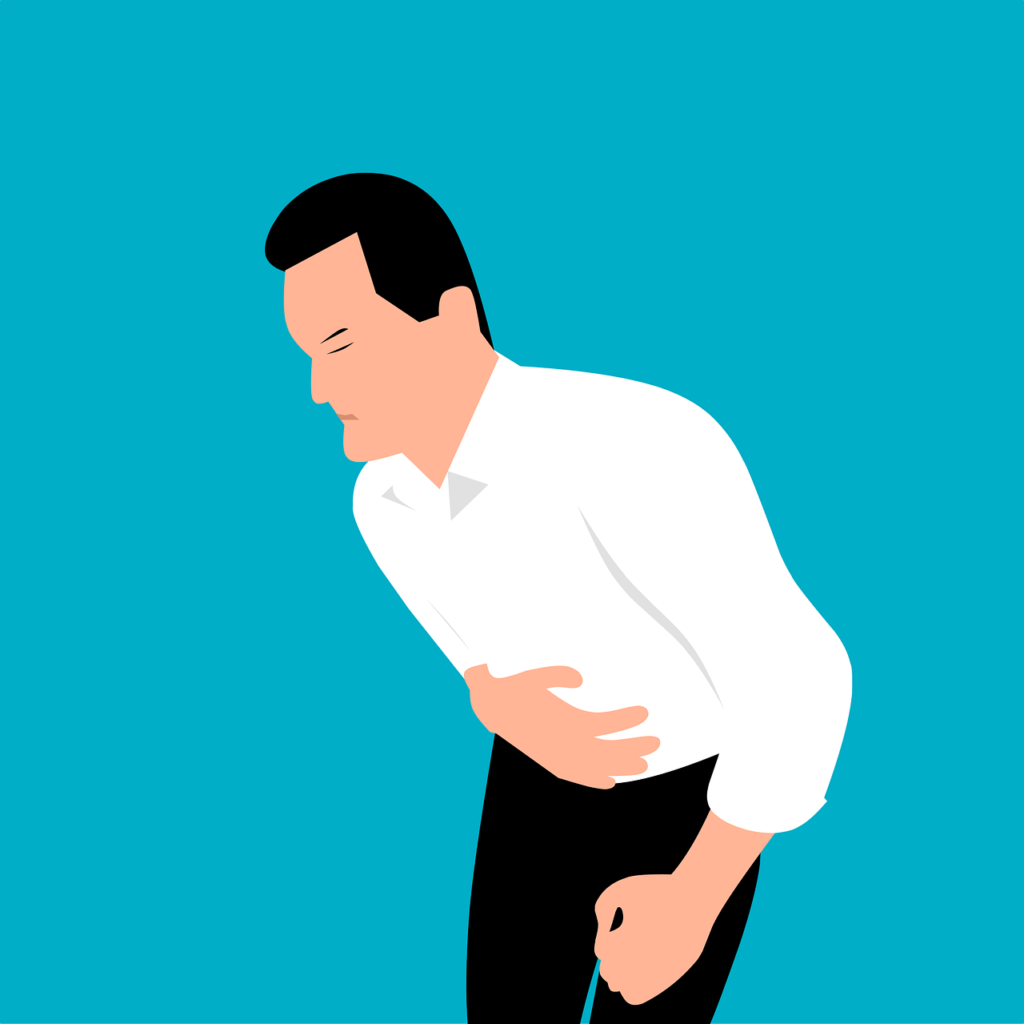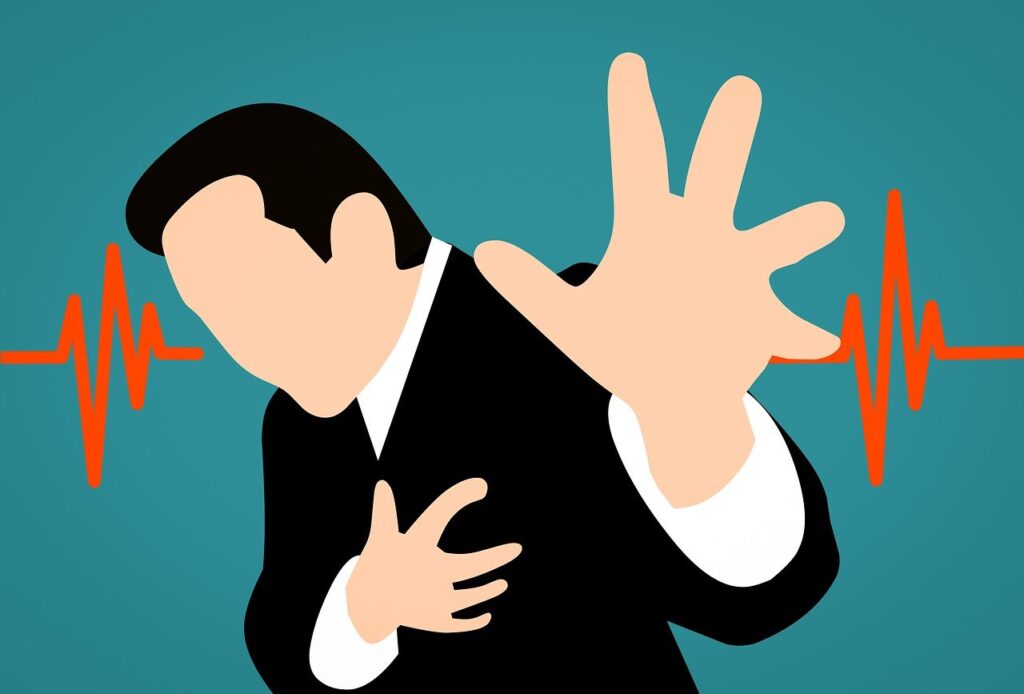Chest and abdominal pain can be distressing especially when you experience them together. They become even more challenging to understand. In this comprehensive piece of content, I will delve into the various details of chest and abdominal pain, exploring the possible causes, symptoms, and when you should seek medical attention.
Causes of Chest and Abdominal Pain
The symptoms of chest and abdominal pain can be caused by a variety of illnesses, and they frequently point to problems with your abdomen or chest cavities. These symptoms can range in intensity from moderate discomfort to intense, stabbing pain, and they may indicate underlying medical issues with your digestive tract, heart, lungs, or other organs. Assessing the location of the pain, length, severity, comorbidities, and potential triggers is essential for ascertaining the potential reason and directing suitable medical assessment and intervention.
- Gastrointestinal Issues: Problems in your digestive system, such as acid reflux, gastritis, or irritable bowel syndrome, can lead to chest and abdominal pain after eating. That answers your question “Why do my stomach and chest hurt after I eat?”
- Infections: Viral or bacterial infections can cause inflammation in your chest and abdomen, resulting in pain. In cases like these, chest and stomach pain are common COVID-19 symptoms.
- Cardiac Issues: Cardiac conditions, including angina or heartburn, can present as chest pain that may radiate into your abdomen.
- Musculoskeletal Problems: Issues with your muscles, ribs, or the spine can lead to pain in your chest and abdominal regions.
- Anxiety: Stress and anxiety can manifest in you physically, causing chest and abdominal pain due to muscle tension and increased stomach hydrochloric acid production.
- Pregnancy: If you are pregnant, you may experience chest and abdominal pain as your body undergoes significant changes.
Importance of Understanding Chest and Abdominal Pain Symptoms for Early Diagnosis and Treatment
Understanding chest and abdominal pain symptoms is crucial for several reasons:
- Early Identification of Severe Illnesses: Heart attacks, pulmonary embolisms, aortic dissections, and gastrointestinal problems are just a few of the severe illnesses that these symptoms may point to. Early diagnosis and treatment—possibly life-saving—can result from swiftly identifying these symptoms.
- Differentiating between Urgent and Non-Urgent Cases: Knowing the type of pain and any accompanying symptoms can help you distinguish between problems that need to be treated right away and those that might not be as serious. Appropriate triage and prompt treatment are guaranteed by this differentiation.
- Early underlying cause identification facilitates prompt diagnostic testing and treatment, which enhances results and lowers the risk of complications related to specific illnesses.
- Prevention of Progression: Early detection of signs of chest and abdominal pain may be able to stop an illness from getting worse. For example, ruptures or serious infections can be avoided by promptly treating gastrointestinal disorders such as appendicitis or gallbladder troubles.
- Enhanced Quality of Life: Promptly treating the underlying cause of the chest and abdominal pain can lessen discomfort, lessen its effects on day-to-day activities, and enhance the quality of life for the person in question.
- Reducing Stress and Anxiety: A major source of anxiety can be unknown chest and abdominal pain. This stress is reduced by prompt diagnosis, adequate treatment, and the provision of direction and a plan of action.
Chest Pain Symptoms Related to Abdomen
Differentiating Types of Chest Pain
- Sharp Chest Pain: Frequently compared to a piercing or stabbing feeling. It may be sporadic or localized, and it may be related to breathing or movement.
- An ache or pressure in the chest that may feel heavy or painful is referred to as dull chest pain. Compared to acute pain, it may be more sporadic and persistent.
- Burning Chest Pain: Usually connected to illnesses like acid reflux or heartburn, this pain is characterized by a burning or heated feeling in the chest.
Common Causes of Chest and abdominal Pain
- Acid reflux, often known as heartburn, is a burning feeling in the chest that is typically made worse by lying down or consuming particular foods. It is caused by stomach acid backing up into the esophagus.
- Angina: A pain or discomfort in the chest brought on by a decrease in blood supply to the heart muscle; often, coronary artery disease is the reason. Stress or physical effort are common causes of it.
- A heart attack, also known as a myocardial infarction, is caused by a blockage in a coronary artery that prevents part of the heart muscle from receiving blood. This frequently manifests as excruciating, crushing chest and abdominal pain that may spread to the jaw, back, or arms. Sweating and shortness of breath are also common symptoms.
Additional Symptoms Accompanying Chest Pain
- Breathlessness: The inability to breathe or the sensation of being out of breath, which may signal a major heart or lung issue.
- Dizziness or Lightheadedness: Feeling lightheaded or faint, frequently accompanied by chest pain from a blocked heart valve or reduced blood flow.
Abdominal Pain Symptoms In Relation to Chest Pain
Differentiating Types of Abdominal Pain
- Often characterized as cyclic and sporadic, crampy abdominal pain is akin to menstrual cramps. It could be connected to ailments like bloating or diarrhea.
- Colicky Abdominal Pain: Usually related to kidney stones or gallstones, this type of pain is characterized by abrupt bursts of strong, intermittent agony.
- Steady Abdominal Pain: constant, unbearable pain or discomfort that doesn’t vary much in intensity; it can be brought on by conditions like infection or inflammation.
Common Causes of Abdominal Pain
- Indigestion: Symptoms such as bloating, gas, or heartburn are commonly accompanied by discomfort or pain in the upper abdomen that is related to eating.
- Appendicitis: an inflammation of the appendix resulting in abrupt, intense pain radiating to the lower right abdomen, beginning near the belly button. Fever, a nauseous feeling, and vomiting are possible further symptoms.
- Kidney stones: sharp, acrid pain, generally in the side or back, with the potential to spread to the groin or lower abdomen. Waves of pain may occur, and they may be accompanied by nausea, vomiting, and blood in the urine.
Associated Symptoms with Abdominal Pain
- Vomiting and Nausea: Especially in cases of severe pain or gastrointestinal problems, nausea and vomiting are common side effects of abdominal discomfort.
- Modifications in Bowel Movements: Constipation, diarrhea, or changes in the consistency of the stool can all be associated with abdominal pain, which is a sign of problems in the gastrointestinal tract.
- Fever and chills: Fever and chills can be a sign of infections or inflammatory diseases that cause pain in the abdomen.
Female Stomach and Chest Pain
Stomach and chest pain in females may be associated with conditions specific to the female reproductive system. Menstrual cramps, caused by uterine contractions during menstruation, can lead to abdominal pain. Additionally, conditions such as endometriosis, where tissue similar to the lining of the uterus grows outside the uterus, may cause pelvic and abdominal discomfort.
Pregnancy-related factors, such as the expansion of your uterus and hormonal changes, can also contribute to stomach and chest discomfort. Conditions like preeclampsia, a pregnancy complication characterized by high blood pressure, may manifest in you with abdominal pain and chest discomfort. It’s essential for women experiencing such symptoms, particularly during pregnancy, to consult with a healthcare professional for proper evaluation and guidance tailored to their specific health circumstances.
Upper Stomach and Chest Pain
Upper stomach and chest pain can be attributed to various causes, including gastrointestinal problems such as gastroesophageal reflux disease (GERD), where stomach acid regurgitates into the esophagus, causing heartburn and upper abdominal discomfort. Conditions like peptic ulcers and gastritis, characterized by sores on the stomach lining or inflammation, respectively, may also manifest in you as pain in the upper abdomen.
Heart-related concerns like angina or a heart attack can lead to upper chest discomfort that may radiate into your stomach area. Musculoskeletal problems, respiratory issues like pneumonia, and pregnancy-related changes can contribute to localized or radiating pain in the upper chest.
Given the diverse range of potential causes, it is imperative to consult your healthcare professional for a thorough evaluation if you are experiencing upper stomach and chest pain. Prompt medical attention is particularly crucial if the pain is severe, persistent, or accompanied by additional symptoms such as difficulty breathing, as this may indicate that you have a more serious underlying condition. Seeking personalized medical advice ensures that you get an accurate diagnosis and appropriate management based on your specific circumstances.
Stomach back and Chest Pain Together for Days
Experiencing persistent stomach, back, and chest pain simultaneously for an extended period raises concerns about various potential underlying causes. Gastrointestinal issues such as gastritis, peptic ulcers, or pancreatitis may contribute to abdominal discomfort that extends to the back. Concurrently, cardiovascular problems like angina or a heart attack can lead to chest pain that radiates to the back, emphasizing the importance of a thorough medical evaluation to rule out serious cardiac conditions.
Musculoskeletal problems, such as muscle strain or spinal issues, could also be implicated, as they may manifest as both back and chest pain. On top of that, pulmonary conditions like pneumonia may cause chest pain that is felt in the back, adding to the complexity of potential diagnoses.
Given the broad spectrum of possible causes and the severity of the symptoms, seeking immediate medical attention is crucial. Your healthcare professional will conduct a comprehensive assessment, including a physical examination and diagnostic tests, to determine the specific cause of your pain and provide you with an appropriate treatment. If the pain is severe or accompanied by alarming symptoms, prompt medical intervention, potentially through emergency services, is advisable to ensure your timely and accurate care.
Chest and Stomach Pain Anxiety
Chest and stomach pain can be linked to anxiety, as your body’s response to stress triggers various physiological changes. One way anxiety contributes to these symptoms is through muscle tension that affects your chest and abdominal muscles and potentially leads you to discomfort or pain. Additionally, anxiety’s impact on the digestive system can result in stomach pain, bloating, and indigestion, reflecting the intricate relationship between mental and physical well-being known as the gut-brain axis.
Hyperventilation, a common occurrence during anxiety or panic attacks, can also induce changes in oxygen and carbon dioxide levels, potentially causing chest discomfort. The somatic symptoms of anxiety, where emotional stress manifests physically, may contribute to the perception of chest or stomach pain, even in the absence of an identifiable physiological cause.
While anxiety is a recognized contributor to these symptoms, you need to consider and rule out other potential medical conditions, especially those related to your heart, lungs, or gastrointestinal system. I would advise you to Seek professional medical advice for a thorough evaluation, accurate diagnosis, and guidance on managing both the physical symptoms and the underlying anxiety. Healthcare professionals can help you to determine an appropriate course of action, which may include addressing the root causes of your anxiety and implementing strategies for symptom relief and your overall well-being.
Stomach and Chest Pain at night
Experiencing stomach and chest pain at night can be attributed to various factors, with gastroesophageal reflux disease (GERD) being a common cause. The relaxation of your lower esophageal sphincter during sleep can lead to the backflow of stomach acid, causing heartburn and chest discomfort. Additionally, peptic ulcers and gastritis may contribute to nighttime pain, with symptoms often intensifying when your stomach is empty. Musculoskeletal issues, such as chest muscle strain or inflammation of chest cartilage, could also be a source of localized discomfort. In some cases, nighttime panic attacks or anxiety can manifest physically, leading to chest pain and tightness. Sleep-related conditions like sleep apnea or nighttime acid reflux may further exacerbate your chest pain during the night.
Given the diverse range of potential causes, seeking professional medical advice is essential for you to identify the specific reason for nighttime stomach and chest pain. Your healthcare professional can conduct a thorough evaluation, considering the characteristics of the pain and any accompanying symptoms, to determine an accurate diagnosis. Timely intervention is particularly important, especially if the pain is severe or associated with alarming symptoms, to ensure appropriate management and relief of discomfort during nighttime hours.
When to Seek Medical Attention For Chest and Abdominal Pain
While not all chest and abdominal pain is an emergency, some situations warrant you to get immediate medical attention:
- Sudden and Severe Pain: If the pain is sudden and intense, especially if it radiates to the left arm, neck, or jaw, it could indicate a heart attack.
- Breathing Difficulty: Chest pain accompanied by severe shortness of breath may indicate a serious condition.
- Prolonged or Worsening Symptoms: If your symptoms persist or worsen over time, consult your healthcare provider.
Managing Chest and Abdominal Pain
Managing chest and abdominal pain involves addressing the underlying cause. Here are some strategies that may provide relief for you:
- Lifestyle Modifications: If the pain is linked to dietary choices or anxiety, making dietary adjustments and practicing stress-reduction techniques can be helpful.
- Medications: For conditions such as acid reflux or gastritis, medications may be prescribed to alleviate symptoms.
- Physical Therapy: If musculoskeletal problems are the root cause, physical therapy can be beneficial.
- Pregnancy Care: If you are pregnant, you should follow the guidance of your healthcare provider to manage pain during pregnancy.
- Consult a Healthcare Provider: If you’re uncertain about the cause of your chest and abdominal pain, or if it persists, it’s vital to consult your healthcare provider for a comprehensive evaluation.
In Summary:
Chest and abdominal pain can be a perplexing and distressing combination. Understanding the potential causes and characteristics of this type of pain is the first step toward effective management. If you experience such symptoms, you must seek the guidance of your healthcare provider to ensure that you get a proper diagnosis and appropriate treatment. With the right knowledge and approach, you can navigate chest and abdominal pain with confidence and comfort.
Visit www.medicalantidote.com for more in-depth health articles.



